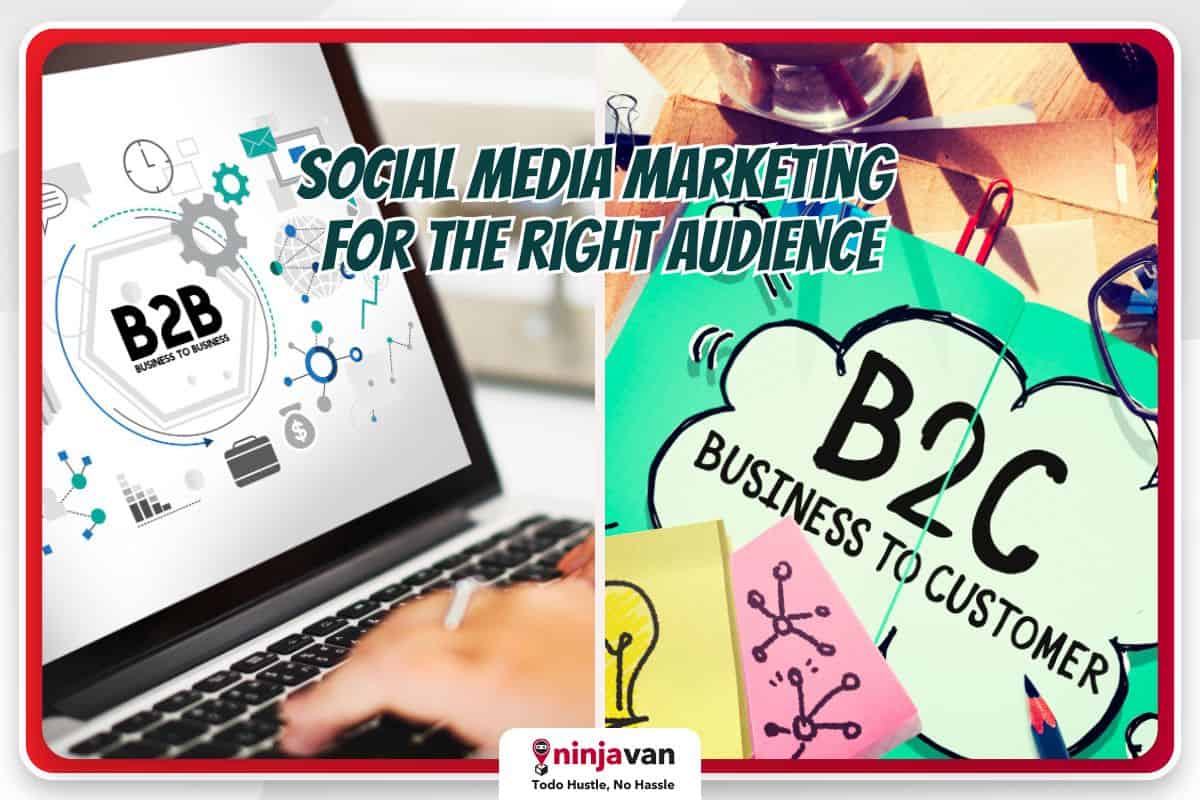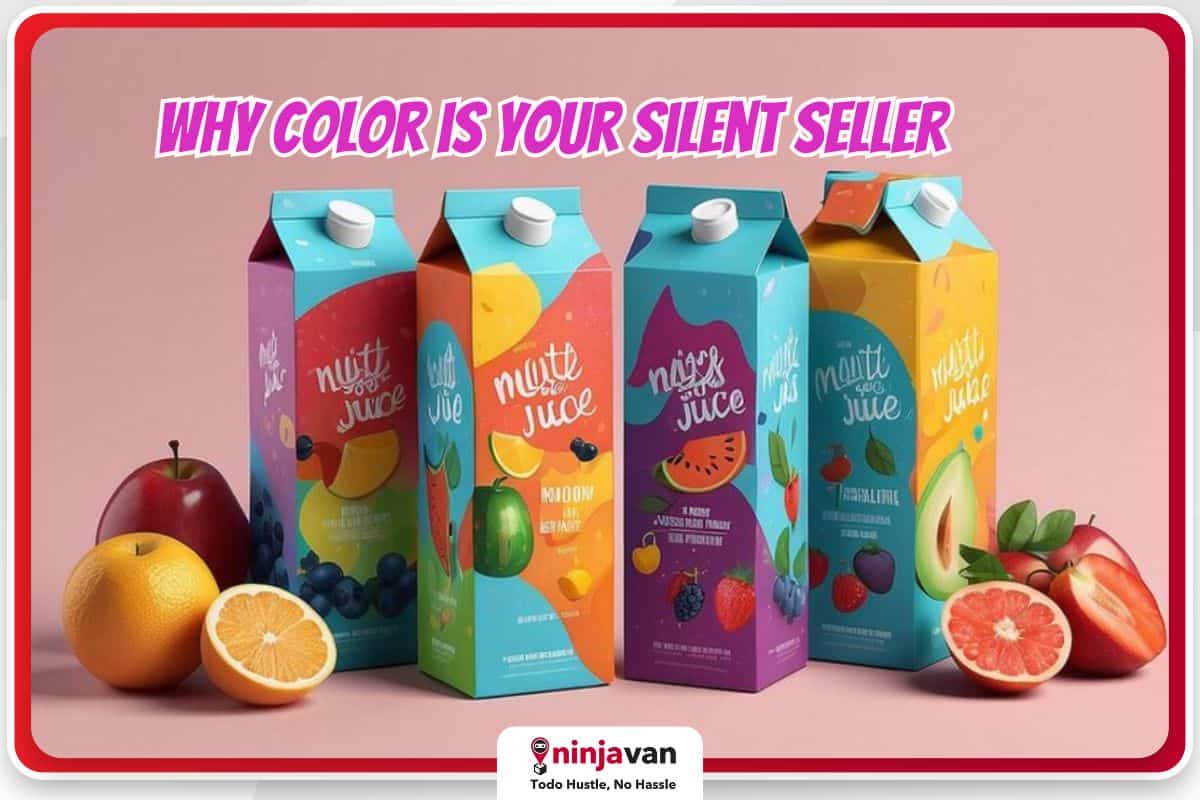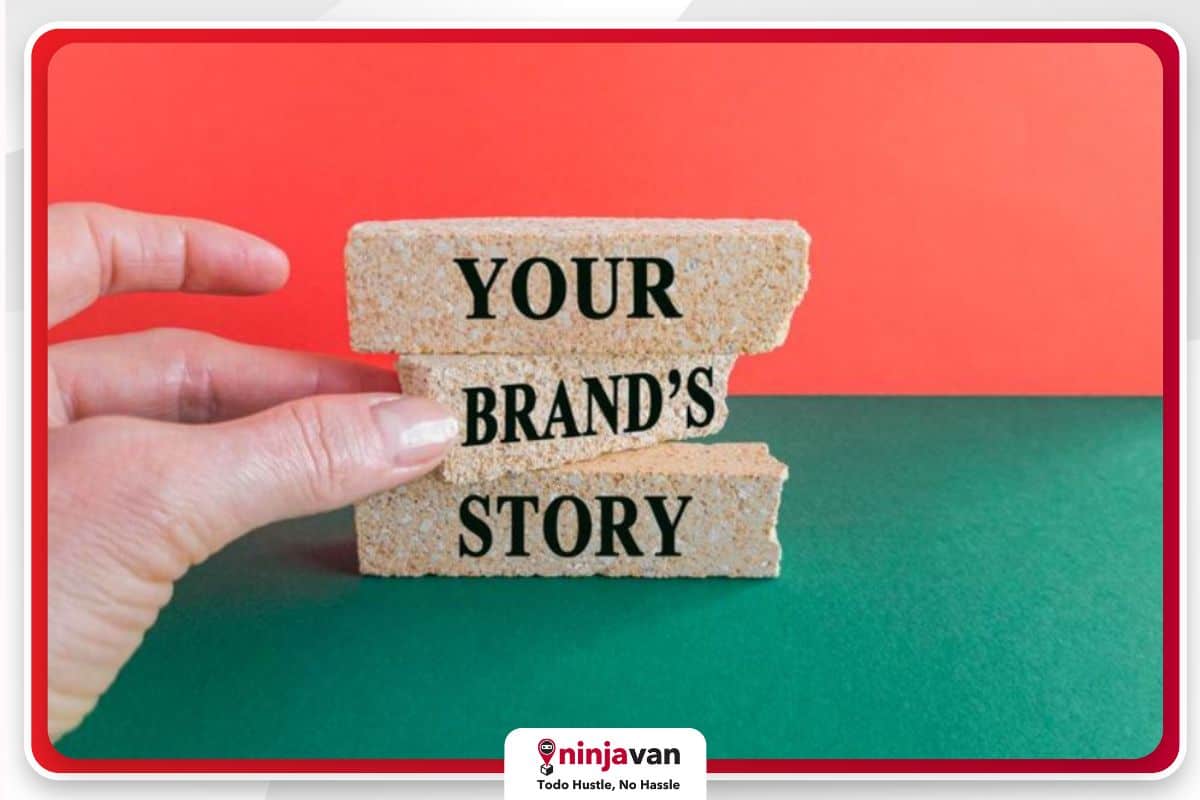Social media marketing is now crucial for every business success — both for B2B (Business-to-Business) and B2C (Business-to-Business) models.
However, the real challenge lies in choosing the right platform and strategy that align with the unique needs and goals of each business.
We’ll discuss the differences between B2B vs B2C social selling, offering insights into crafting effective strategies tailored for different kinds of businesses.
Also read: How Social Media is Changing Online Shopping
B2B vs B2C marketing explained
Before getting into the specifics, it’s important to understand the differences between B2B and B2C marketing.
- B2B marketing centers around businesses and professionals. This method prioritizes relationships, expertise and partnerships.
- B2C marketing targets individual consumers with a strategy that focuses on emotions, lifestyle alignment, and immediate satisfaction for customers.
As for their business goals:
- B2B – Build brand awareness, showcase expertise, generate leads and create long-term relationships
- B2C – Drive sales, boost brand visibility and cultivate customer loyalty
#NinjaTip: Boost your social selling with safe, fast and hassle-free deliveries to your customers. Ninja Van’s VIP Shipping Account not only gives you door to door delivery to anywhere in the Philippines, you’ll also enjoy perks and rewards that will cut your shipping costs! Learn about our VIP Shipping today!
B2B vs B2C social selling strategy
Social selling is a powerful tool that can be used to generate leads, nurture relationships and close deals. And there are some key differences between B2B and B2C social selling that you need to be aware of in order to be successful.
Market research, competitor analysis and staying on top of emerging social media trends are crucial to identify suitable social selling strategies, whether it be B2B or B2C.
With all these in mind, let’s dive deeper into the differences between B2B and B2C social selling

social selling strategy.
1. Identifying target audiences
The first thing to do is to identify who your business will be talking to. Effective social selling lies in deeply understanding the ins and outs of your target audience — their needs, and what kind of solution your business can provide for them.
For B2B, it means appealing to businesses and decision-makers, so there’s a need for an in-depth understanding of industry trends, challenges and opportunities.
On the other hand, B2C means capitalizing on the desires, preferences and behaviors of individual consumers, which would entail a more emotional and personal approach.
2. Choosing the right platforms
While it’s nice to think of the internet as an all-encompassing platform, it’s actually targeting specific social platforms that will give your businesses the edge in terms of reaching your desired market.
Using LinkedIn and X (formerly Twitter) for B2B marketing makes more sense because the users of these platforms are mostly businesses.
Tapping into TikTok, Facebook and Instagram would work best for B2C social selling as these are more personal apps, most commonly used by individual customers.
BTW, check out our tips on How to Go Viral on TikTok.
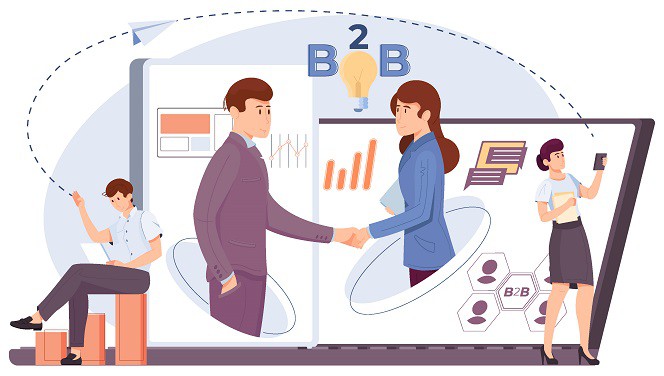
and identifying challenges and opportunities.
3. Crafting the messaging
The next step is to come up with a messaging angle that will capture the identified audience on the correct platform.
For effective B2B marketing, messaging should show strong expertise, factual insights, problem-solving capabilities, and a commitment to long-term partnerships.
As for curating a message for the B2C approach, the most important factor to hinge on would be the immediate value the business can add to the lives of its customers, as well as lifestyle alignment, and the business’ capability to evoke emotional connection and relatability.
4. Putting out content
For B2B, businesses usually react to content that showcases expertise and credibility such as:
- Case studies
- White papers
- Webinars or podcast
These are informative and educational content that will help decision-makers make informed decisions. The tone should also be professional and authoritative.
While individual customers for B2C enjoy emotional and engaging content that will appeal to their desires. This may include:
- Trendy videos
- Curated photos
- Engaging/entertaining posts
Your tone should stay casual and friendly.
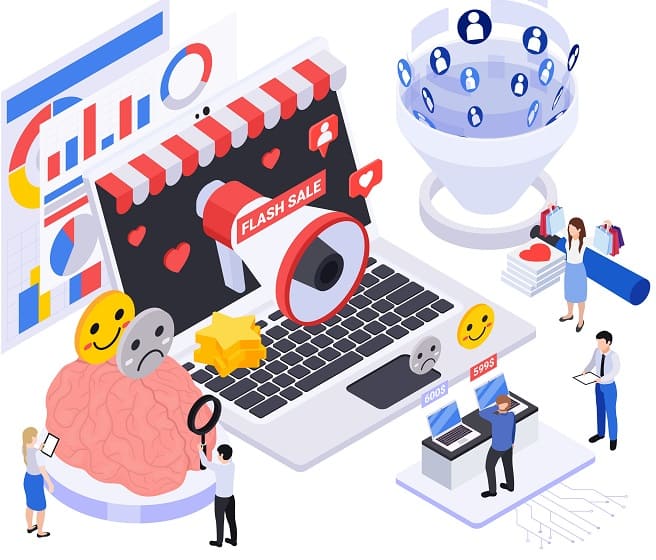
connection and relatability.
5. Curating effective ads and copy
More often than not, both businesses and individual customers will come across products and services that they need through ads or through social media algorithms. What they see will definitely make an impact if the ads and copy are done right.
B2B businesses will want to purchase products or services from experts that clearly use terminologies and the appropriate lingo in a specific industry.
Whereas, the B2C strategy calls for ad copies that appeal to emotions and position itself as a solution to problems that customers experience in their daily lives.
Check out these tips on How to Win Customers through Emotional Branding.
6. Understanding buying behaviors and motivations
B2B buyers are typically motivated by efficiency, cost-effectiveness and long-term value.
On the flip side, B2C buyers are often influenced by emotion, brand loyalty and the desire for immediate satisfaction.
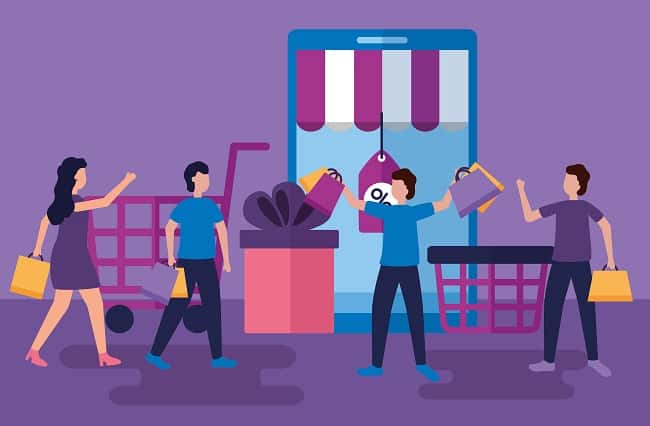
very different between B2B and B2C.
7. Sales approaches
Businesses appreciate long-term relationships that are built through work ethics, and company morals. The most important factor is establishing trust. Since businesses transact in the light of partnerships, sustaining this harmonious relationship between the two parties involved is crucial.
As for individual customers, the phrase “time is money” rings true. Ultimately for B2C social selling, the goal is to make every transaction smooth and efficient. There’s an opportunity to be more personal, however, it should be in a manner that’s also practical for the business.
B2B vs B2C social media strategy: additional tips
Don’t be overwhelmed by the information presented here. In a fiercely competitive and highly saturated digital landscape, mastering the techniques and strategies of B2B vs B2C social selling is important to stand out and succeed.

stand out, target the right customers and succeed!
Here are some additional tips for B2B social selling:
- Build relationships with key decision-makers
- Share industry insights and thought leadership
- Engage with your audience on a regular basis
- Use social media to drive traffic to your website
- Track your results and make adjustments to your strategy as needed
And here are some additional tips for B2C social selling:
- Create shareable content that will appeal to your audience
- Run contests and giveaways to generate excitement
- Use social media to drive traffic to your online store
- Use social media to build customer relationships
- Track your results and make adjustments to your strategy as needed
By understanding your target audiences, choosing the right platforms, crafting compelling messaging and content types, your small businesses will have an edge to effectively penetrate the B2B or B2C market.
More tips to boost your social media marketing:
A Complete Guide to Social Media Marketing
Social Media Metrics You Should Be Monitoring
Free Social Media Management Tools You Can Use

